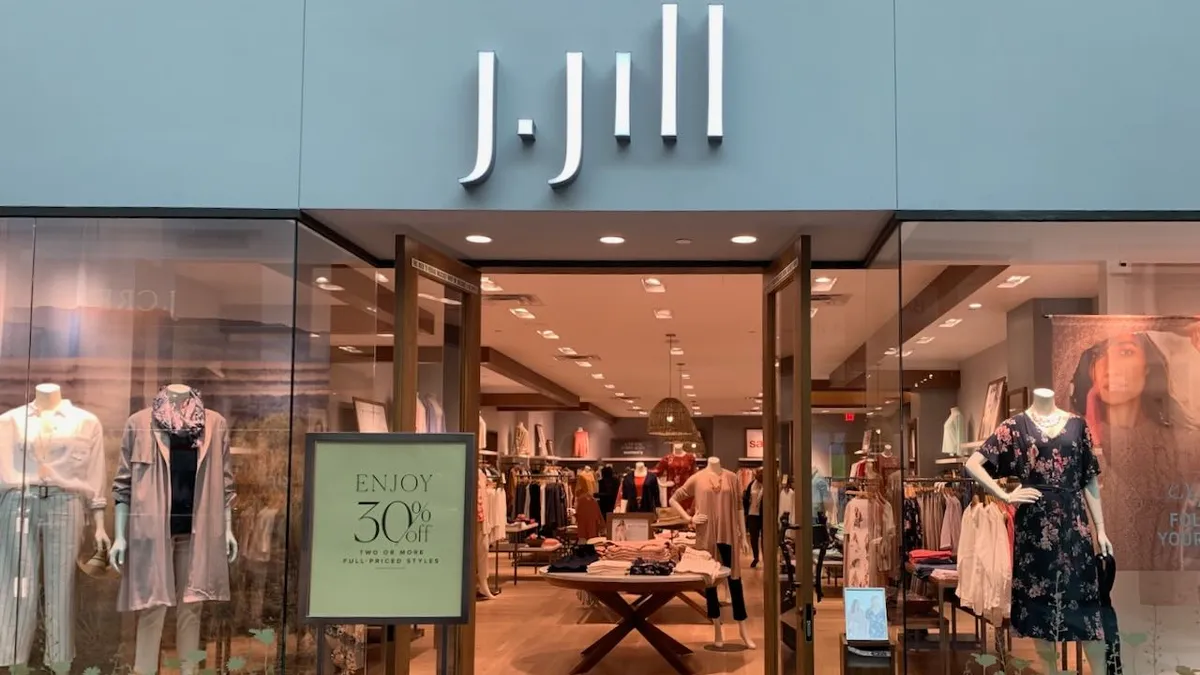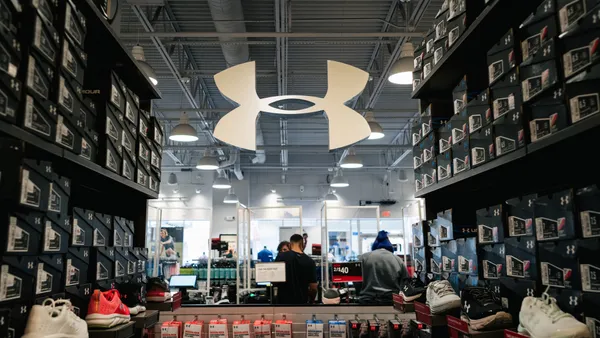Dive Brief:
- S&P Global downgraded a subsidiary of apparel retailer J. Jill citing "unprecedented disruption" from the COVID-19 pandemic, according to a Wednesday press release emailed to Retail Dive.
- S&P lowered its rating for J. Jill to CCC-, from CCC+. In doing so, analysts with the firm said they "expect an imminent covenant breach and cash burn for the next several quarters."
- The analysts gave the company a negative outlook, indicating their view that J. Jill could file for bankruptcy or restructure their debt out of court in the next six months.
Dive Insight:
J. Jill had problems well before the pandemic struck. The women's apparel seller's income swung to a $128.6 million loss last year as its comparable sales fell 3.6%.
Interim CEO Jim Scully has called 2019 "challenging," but, in a March call with analysts, pointed to improvements in inventory management as well as room for optimism about the brand. "We serve as a remarkable, growing and yet underserved demographic," he said, according to a Seeking Alpha transcript. "We have a right-sized store fleet, great penetration of online and a loyal customer who values both channels as ways to interact with the brand."
S&P analysts Pasha Azadmard and Helena Song said of J. Jill this week that "several management missteps weakened the business and left it vulnerable to adverse conditions." When the ratings agency downgraded the retailer previously, in December, analysts cited "less effective marketing strategies and repeated merchandise mistakes with less on-trend colors and styles," which in turn have hurt the brand's relevance.
The work of a full-price apparel seller was already difficult. Now the sector faces a pandemic that has closed nearly all clothing stores and has roiled the global economy, which could weaken consumer spending and hurt the sector for potentially years to come. Azadmard and Song said Wednesday that "the significant hurdles stemming from the pandemic and ensuing recession result in very dim turnaround prospects" for J. Jill.
The retailer has shuttered its stores in response to the pandemic and furloughed the majority of its store workers to preserve liquidity. Offsetting to some extent the cash burn and massive hit to store sales is J. Jill's direct channel, which the S&P analysts note typically accounts for 40% of the brand's sales.
"However, we believe deflated consumer confidence amid a recession and lingering concerns of a coronavirus resurgence will slow the recovery trajectory, especially for discretionary categories such as apparel," the analysts said. "As such, we anticipate it will be difficult for Jill to meet its obligations and garner support from lenders."
Further, the company could breach its covenants because of leverage increases, as it draws on its revolver for cash amid the closures, and as earnings remain depressed, the analysts added.
As J. Jill grapples with liquidity and balance sheet woes, it has reportedly brought on advisers, including law firm Kirkland & Ellis — a retail bankruptcy specialist. A group of lenders to J. Jill have also hired advisers, according to reports in Debtwire and The Wall Street Journal, a sign that the lenders are preparing for negotiations on J. Jill's debt.
J. Jill is not alone in its position. Dozens of retailers that are already in distress face a steep challenge just to survive in the current environment, with sales severely depressed, and their individual and collective economic future uncertain. J. Crew and True Religion have already filed for bankruptcy citing the COVID-19 disruption. Others are likely to follow.














